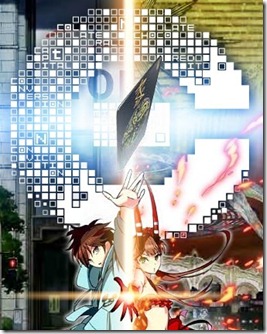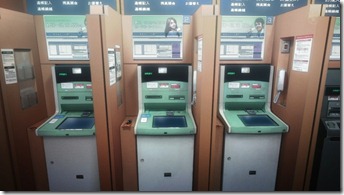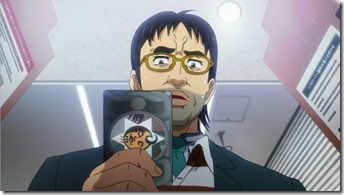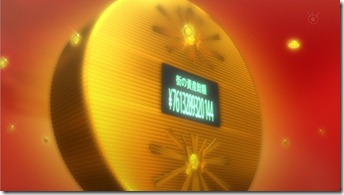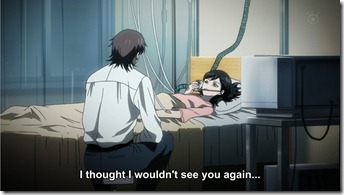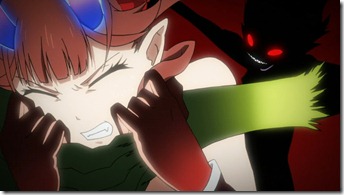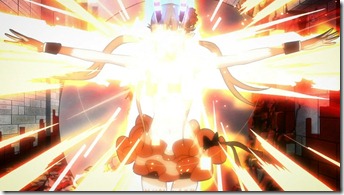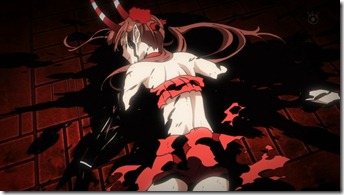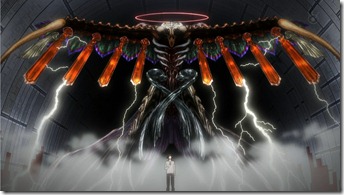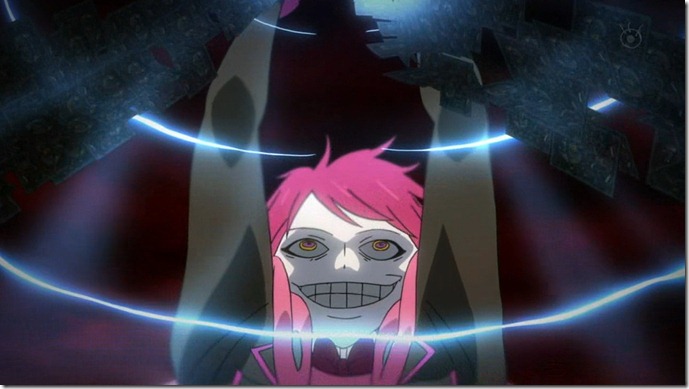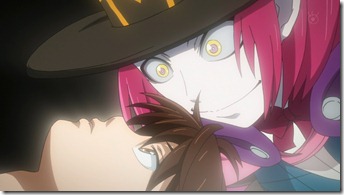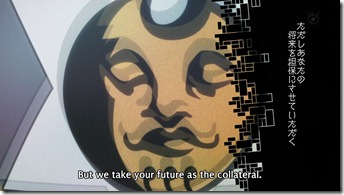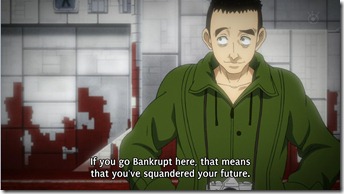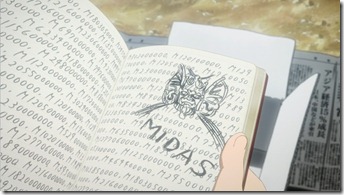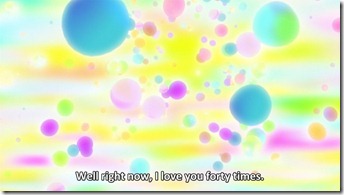C: The Money of Soul and Possibility Control
Title: C: The Money of Soul and Possibility Control Genre: Sci-Fi Rating: 4.0/10
Summary: The Japanese government was rescued from the brink of financial collapse by the Sovereign Wealth Fund. For its citizens, however, life has not improved, and unemployment, crime, suicide, and despair are rampant. Kimimaro, raised by his maternal grandmother after the disappearance of his father and the death of his mother, is a scholarship student whose only dream is to avoid all this and live a stable life. One day, however, he meets a man who offers him a large sum of money if he’ll agree to pay it back. From then on his fate is radically altered as he’s drawn into a mysterious area known as “The Financial District.” Review: I praised this anime quite a bit during my first look only to be quite disappointed when the anime finished. Probably one of the biggest mistakes or misjudgments I made was the number of episodes I was expecting. At the time I believed the anime would be at least twenty episodes since four episodes in it still didn’t have much of a story. However, it turns out it was actually shorter than more series with only eleven episodes. In this short period of time the anime had no chance of really ironing out the details and diving people deep into a story. The biggest downfall for this anime had to be the lack of explanation. C: The Money of Soul and Possibility Control had a great platform but poor build up. However, the series does bring out some great shots and concept right at the end. The series had wonderful animation at some parts then some not-so-great animation elsewhere. The general look of the anime was quite good. The lighting effects, facial expressions, and unique character design were refreshing. Like most anime it was pretty funny to see the different between look of different cultures. The facial features were vastly different which can be taken as good or bad. There were a couple things that I was a bit trouble by though. The first thing I noticed was the use of CG at non-appropriate times. It seems like the CG was used to speed up production due to laziness or lack of time. It stood out from the still, hand-drawn backgrounds and other characters. The way I see it, never use CG for characters unless everyone is in CG, otherwise it looks like a mess. The other thing was character jumping. I’m not sure if the anime was doing it on purpose for effect or if it was accidental which doesn’t say anything good. I know in the final episode there was a definite fault of jumping that caught my eye. Overall I would say the series had a good style that made the fight scenes more interesting. However, since it did have a few faults here and there, I can’t say it was top notch. The storyline is where the anime was getting most of its credit, at least at first. The series started off great and it pulled me in. The topic of money and how it effects world issues can peak of the interest of most people. Unfortunately the series started to down hill with its poorly explained events, very basic concept of economy, and lack of hooks. I will give the anime this, it didn’t waste any time getting to the point. However, because of its fast nature and seemingly discontinuous events the anime dropped its plot points quite a bit. Matched with areas of poor animation I would have to say that the entire series was rushed. It is unfortunate because it seems like it could have had been great. If the series actually had a full two seasons (24 episodes) I’m sure my review would be quite a bit different. A few things that stand out were the main character’s past, the loose definition of “future”, economic downfalls, and the philosophical debate between the protagonist and antagonist. Let’s just address each issues individually because I don’t feel like rushing a review for a rushed anime. The main character’s past seemed like it was going to play a big part in the anime after what the protagonist had to go through to actually find it out. The plot of what happened to his father, especially after learning that he was apart of the Financial District, seemed to have died out faster than the time it took to develop. The entire thing just kind of dwindled away because there were much bigger things going on. This was disappointing because there was constant talk about how the boy was special in some way or another. However, it isn’t until the very end till you find out how he actually plays a vital role in the future of the country and Financial District. Even then I’m not sure if that was what made him so “special” since it was meant to be a shock to everyone that he actually had the power to control this-that-and-the-other (avoiding spoilers). It seems to me that with all the hundreds and thousands of people actually participating in the Financial District, remembering one guy and his battles would mean something more even for an information broker. Apparently his dad was just an average Joe living out his life and trying to provide for his family. I think it would have been better if the series didn’t make such a big deal about the kid’s past or made it so dark.Next comes the definition of future. The entire series revolved around helping make a future for the country and individual people. The participants of the Financial District had special creatures called assets which were supposed to represent their futures. Other than representing a participant’s future the assets didn’t seem to have any solid explanation. The loose term of “future” didn’t really give these creatures justice since they came in all different shapes and sizes. Going back to the protagonist’s asset you learn in the series that it looks scarily similar to his late father’s. Kind of makes me wonder since he didn’t share the same fate as his father. In that sense, I find it very difficult to follow what they meant by futures. You get some understanding of what it mean to put your future on the line when dueling. The more power you had, the bigger loss even if you didn’t go bankrupt. In a way you can think of it as a percent of your life gets changed in correlation to a percent of your money lost. Sadly earning more money will never return what you had lost, and anything/anyone can be effected whether or not they are part of the Financial District. As the series progressed I still wasn’t sure where things were headed and the way they changed the future in the final episode. I’m assuming that C was trying to say that the future is unknown while the present is. Thus the struggle between the protagonist and antagonist.
It seems like they were both going for a similar goal in different ways. While the protagonist fought for the future (by protecting his asset and other such methods), the antagonist fought for the present. To sum everything up you could say that one believed in “live everyday as though it were his last” and the other believed in the African proverb, “for tomorrow belongs to the people who prepare for it today”. Each has its own merit, but of course they made it out that saving the present without thinking of the future is simply prolonging the inevitable downfall. Which in their case of loose fitting economics was true. I enjoyed that they were trying to make it out that there was not one solid answer, but the way things went down kind of killed the dramatic effect for me. None of it seemed to matter in the end since the Financial District is immortal.Final statements: Quite a long review and I apologize for that, but with an anime about economics and my interest in such fields I kind of got into it. It seems like the anime had a lot of great concepts going on. Unfortunately it didn’t follow through and left me disappointed to say the least. I’m going to sadly give this an avoid watch because I don’t feel that the message they were trying to portray is given justice through decent-at-best animation, poor story progression, and loose fitting side plots.
